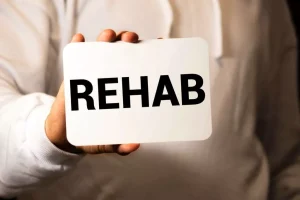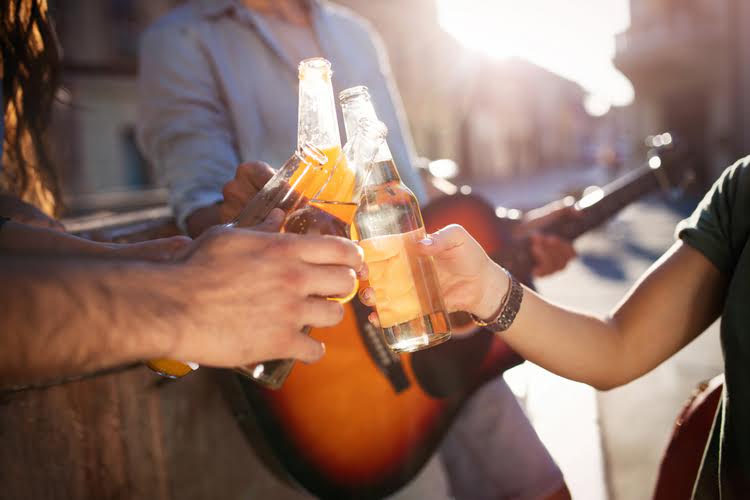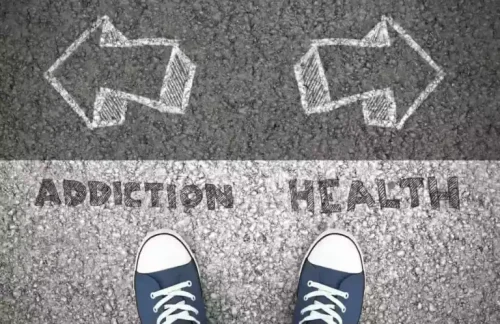How Long Does It Take to Detox From Alcohol?

Stress can cause a slight uptick in elimination rates, making it 0.18g/L/h on average. Here are some tips for what to eat and not to eat as you flush alcohol out of your system. Of course, we all want a simple, achievable number for how long we should abstain from alcohol in order for our bodies to fully heal from its effects.
How Long Does Alcohol Stay in the System?
Having food in the stomach can influence the body’s absorption of alcohol. Food slows the emptying of the stomach into the small intestine, where alcohol is very rapidly absorbed. What equates to 1 drink drug addiction depends on the size and type of alcoholic drink you have.
How long does alcohol metabolism take?
But here are a few other ways that might help you flush out alcohol. Some metabolites not excreted through urine are eliminated through breath and sweat. According to NIAAA, National Institute of Alcohol Abuse and Alcoholism, more than 14 million adults have alcohol use disorder. If you are looking for ways to get alcohol out of your body, please look at the bigger picture and consider sustainable recovery rather than quick hacks that probably wouldn’t work. A phosphatidylethanol (PEth) blood test — a newer but highly sensitive way to test for alcohol use — measures PEth, which is formed when your body processes ethanol.
What Is the Fastest Way to Eliminate Alcohol?
It typically takes a person with a BAC of 0.20 anywhere from 12 to 14 hours to reach sobriety. This length of time usually how to flush beer out of your system depends on how recently and how much you drank. Breathalyzers can detect alcohol in your breath up to 24 hours after drinking. You might be looking for a quick fix to get alcohol out of your system.

Understanding Alcohol Metabolism

We are visually recognizing our growth with a unified look that better reflects who we are today and the passion we have for helping everyone with their addiction and mental health recovery journeys. Navigating the aftereffects of alcohol consumption is a common challenge, sparking widespread curiosity about how to efficiently clear it from the system. Whether you’re looking to sober up after a social event or simply aiming to detoxify, the question of how to get alcohol out of your system is crucial. An older person is also more likely to be taking medication that affects the liver. These factors mean that alcohol is processed at a slower rate, increasing the amount of alcohol absorbed into the body. Once swallowed, alcohol enters the digestive system, travels to the stomach and small intestine, and is absorbed into the bloodstream.
- You may be underestimating how much you drink because you (or your generous friend) aren’t using standard measurements.
- You may also become less coordinated, and your speech may begin to slow down.
- If someone with alcohol problems also battles depression, their symptoms may worsen when drinking.
- It’s true that taking a break from alcohol for any amount of time will be beneficial overall, with some research showing that liver function begins to improve in as little as two to three weeks.
- Unfortunately, most of these remedies are ineffective, and some can even be more harmful, such as “hair of the dog” or having another drink in the morning.
Drink fluids
- It can be hard to find (or even know) the balance of how much alcohol your body is able to handle.
- Our program is accessible nationwide, allowing you to receive assistance from the comfort and security of your home.
- The more you drink, the longer it takes for alcohol to leave your body.
- Drinking alcohol at a faster rate by participating in binge drinking can cause your blood alcohol concentration to increase, compared to sipping liquor or consuming at a moderate pace.
- Ethanol is beverage alcohol that can be detected in urine up to one or two hours after the alcohol has left the body.
Embracing mindful drinking can also transform your relationship with alcohol, leading to healthier habits. Mindful drinking is about being aware of why and how much alcohol you consume. It involves paying attention to the taste and your body’s signals, helping you enjoy a few drinks without overindulging. Your body processes alcohol through your liver, breaking it down into simpler substances that can be easily eliminated.

- So, as soon as you drink it, your body starts working on getting it out of your system ASAP.
- Food slows the emptying of the stomach into the small intestine, where alcohol is very rapidly absorbed.
- But in general, it’s not the order of alcohol that determines the severity of your hangover, says Marino.
- Like many other drugs, alcohol can be detected with a hair follicle drug test for up to 90 days.
A medical detox helps to ease the withdrawal symptoms to set you on a path of easier and more comfortable recovery. EtG urine tests can detect recent drinking with a 70% accuracy — although one 2017 study showed that they’re about 85% accurate for moderate to heavy drinking. After you’ve drained your glass, your body immediately works to get rid of it. Chances are you’ll still be feeling it for about an hour, maybe even 2 hours depending on how your body metabolizes alcohol. Determining exactly how long alcohol is detectable in the body depends on many variables, including which kind of drug test is being used. Alcohol can be detected for a shorter time with some tests but can be visible for up to three months in others.
- Drinking can cause inflammation, gastrointestinal irritation, disrupted sleep and low blood sugar.
- You must increase your water intake after drinking too much alcohol to rehydrate.
- It takes five half-lives for your body to metabolize all of the alcohol you’ve had, anywhere between 20 to 25 hours on average.
- After a night of heavy drinking your BAC may still be over the legal driving limit the next morning.
- Acetaldehyde metabolizes into carbon dioxide, which the body can eliminate.
- This is also the case for breathalyzer tests or breath alcohol tests.
However, the affect that one drink will have on the percentage of alcohol in your blood can vary greatly according to a complex group of personal factors. Roughly 20% of the ethanol in liquor is absorbed into the blood from the stomach and the rest from the small intestine. The longer alcohol stays in the stomach, the longer it takes to be absorbed and the slower the rate of intoxication. Eating before drinking and continuing to snack while you consume alcohol will slow the absorption and reduce its intoxicating impact, but it will prolong the detection period. When you’re trying to flush the alcohol out of your system, you must be honest with yourself. While having a couple of extra drinks one night is fair-game, recognizing that you have a drinking problem is a very different situation.










